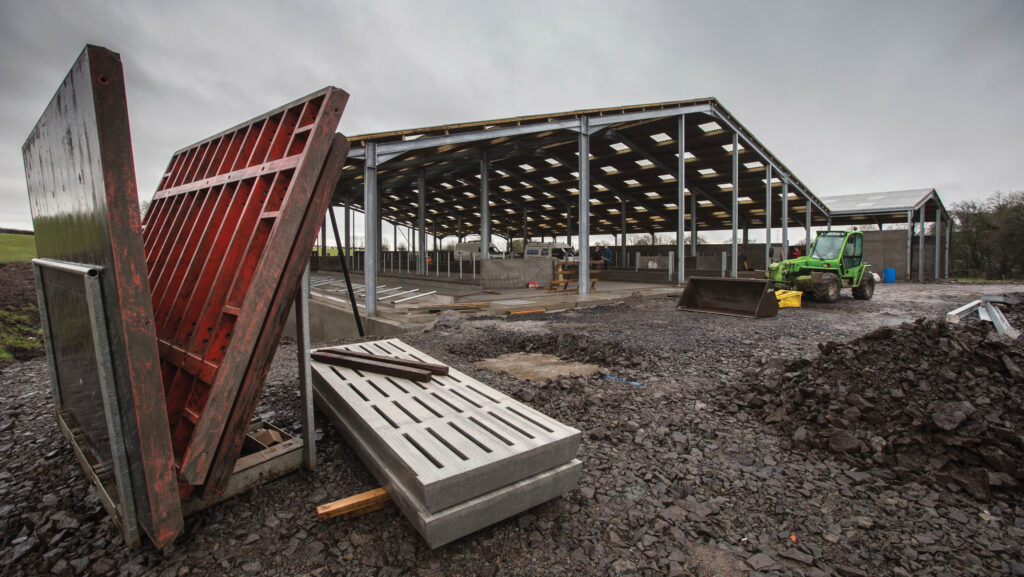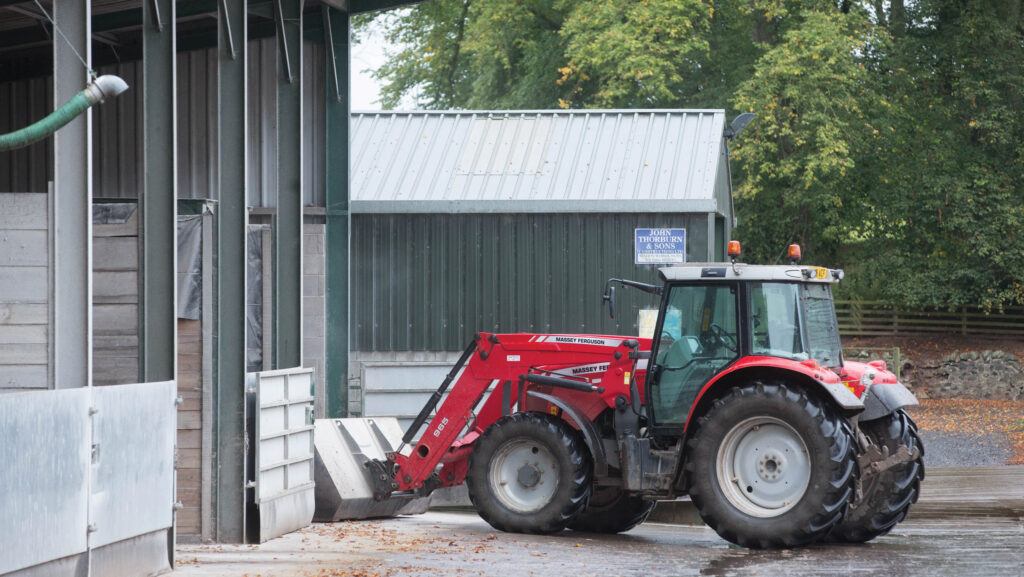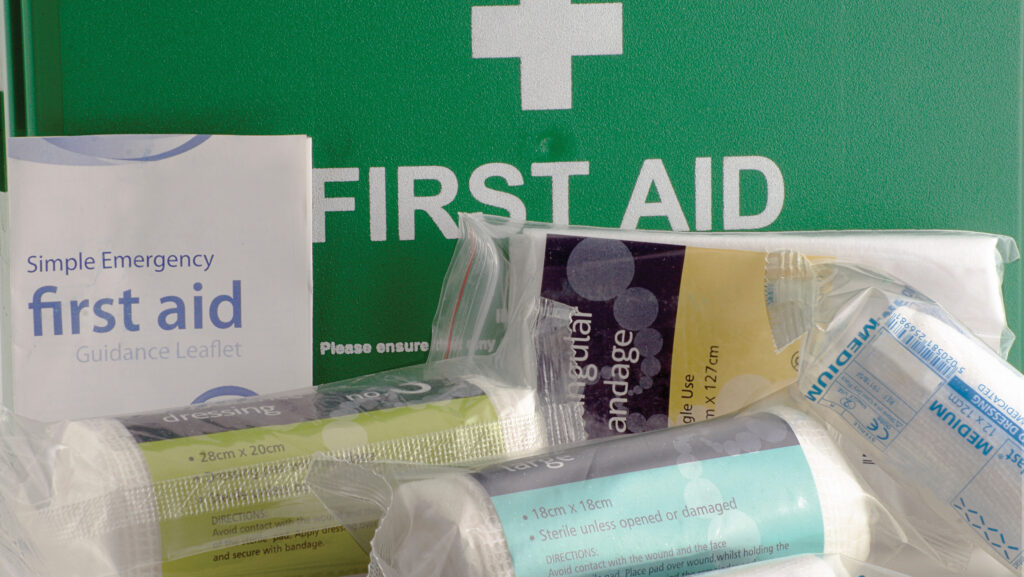What to consider when reviewing farm insurance
 © Tim Scrivener
© Tim Scrivener Insurance is a challenging market, with weather-related claims behind much of the premium increases policyholders have seen over the past few years.
General inflation and in particular in farm machinery values has also added to the cost of covering risk on farms.
Although a fall in general premiums is unlikely, the market could now flatten out, say advisers.
See also: Advice on insurance implications for renewable energy projects
Insurance tips
- When approaching a renewal, get things lined up at least three to four weeks before the renewal date to allow a proper review to be carried out by the broker or agent
- Have all documents to hand – valuations for buildings, machinery and other assets, as well as claims history
- Make a condition report for buildings, prioritising repairs and maintenance appropriately
- Ensure legal requirements on testing of equipment are carried out at the required intervals
- Have the condition of electrics checked every five years by a qualified electrician
- Keep broker/agent/insurers informed of any change in assets and activities
- When changes to the business are planned, contact the broker/agent/insurer at an early stage to help with risk assessment
- Keep an up-to-date machinery and equipment inventory and review values periodically
- Review cover for any buildings that would not be reinstated if they were
to be lost
“Prices are still challenging, but we are probably getting towards the end of what we would call a hard market,” says Paul Graham, managing director of Carlisle-based H&H Insurance Brokers.
“It’s not the case that prices will go backwards, but the materials market is a bit steadier and you can get hold of people to do the work.”
Valuations
Under-insurance remains one of the biggest issues in the agricultural market.
This is where a building is not insured for the correct amount, then the payout for a claim is averaged to reflect the actual proportion of the value that was insured, plus a discount for the level of under-insurance.
There are far too many cases where valuations have not been updated and insurers are not able to be as flexible on claims as they were in the past, says Paul.
The advice is to review buildings valuations every three to five years either traditionally through a rural surveyor or an RICS-approved online tool.
Customers also need to do more to protect their property through good maintenance, he says.
At Brown & Co, head of agricultural business consultant Paul Waberski advises going to tender on insurance every three years.
Machinery inventory and valuations
He suggests keeping an up-to-date machinery inventory so that additions and sales of kit are not forgotten when it comes to producing accurate insurance valuations.
“The value of machinery has gone up so much and farmers sell and buy, it’s easy to forget, so this needs double checking.
“It’s also important not to fall into the trap of using the accountant’s asset register figures for machinery valuations as these will be written down values depreciated by 18% a year, not market values.”

© Tim Scrivener
Risk management
Insurance risk management should be formalised, says Freddie Braithwaite-Exley, account executive with broker Howden.
Risk management is becoming a bigger part of insurance, he says, and evidence of a thorough approach to it will make the business a better prospect for insurers.
“A lot of what is suggested will be done subconsciously by farmers, but formalising it and being able to put your hand to the documents helps.”
This includes having a proper condition report and risk maintenance plan for buildings.
Another aspect is keeping up with legal requirements for testing of equipment.
These are covered under regulations such as the Lifting Operations and Lifting Equipment Regulations 1998, commonly referred to as Loler, and the Provision and Use of Work Equipment Regulations 1998 (Puwer).
Electrical conditions checks, while not mandatory for commercial buildings, are also a sensible precaution at five-year intervals, says Freddie.
Tree condition should also be regularly surveyed and a plan put in place for any work needed.
A thoughtful and through approach to health and safety in general, including first aid training, along with good recording of any incidents and accidents, will also demonstrate good risk management.

© Adobe Stock
A customer will be asked to sign a statement of fact which outlines the information given and on which the cover and premiums are based, says Freddie.
“It’s therefore important that all the information given is correct, and in the case of a farm policy, it will include that all property covered is in good condition.
“If there is a claim and this is later found not to be the case, this gives the loss adjuster the opportunity to highlight a pre-existing condition such as a crack in a wall or a hole in a roof, which might affect the amount paid out.”
Good practice and protocols for farm security should also be documented and followed, again demonstrating how risk is managed.
Keep insurers informed
Any changes to the activities on a farm could change the nature of risk, so it’s important to inform brokers, agents and insurers of changes.
Often this involves alternative enterprises which are not strictly agriculture and would therefore not be covered by farm insurance.
This applies also to farm contracting activity away from the main farm business.
Where there are plans to develop or change the business, get in touch with your broker at an early stage, says Paul Graham of H&H Insurance Brokers.
If a new enterprise is planned, such as a farm shop, early contact means a broker or agent will be able to help with the risk assessment, which can make the difference between cover being provided or refused.
The same applies for the siting of new infrastructure such as a biomass boiler or anaerobic digestion plant, which like other areas of renewable energy, have proved a challenge to insure in some cases.
Get in touch
Have you taken steps to help reduce risk and insurance costs that might help other FW readers? Email details to suzie.horne@markallengroup.com
